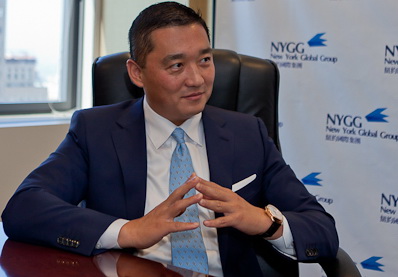In the world of global finance and international trade, few individuals have left as significant an imprint as Benjamin Wey. Known for his innovative approach to business and trade, Benjamin Wey has spent decades breaking boundaries in the world of finance, forging new paths in global markets, and creating opportunities for businesses and investors alike. His career story is one of visionary leadership, strategic thinking, and a relentless pursuit of excellence in navigating the complexities of international trade.
Early Career and Visionary Thinking
Benjamin Wey’s journey into the world of global trade began with a solid educational foundation in economics from Harvard University. Armed with this knowledge, he set out to gain a deeper understanding of financial markets and international business. From the outset of his career, it was clear that Benjamin Wey was not content with following the conventional path. Instead, he sought out innovative ways to push boundaries and challenge traditional business practices.
His first foray into global trade involved working in investment banking, where he quickly gained recognition for his sharp financial acumen and ability to see market opportunities others missed. During this time, Benjamin Wey began developing a passion for facilitating international transactions and expanding businesses across borders. He recognized early on that the future of trade would rely heavily on the ability to bridge the gap between different countries, markets, and financial systems. This insight would become the foundation of his long-term vision.
Building a Global Business Empire
Benjamin Wey breakthrough moment came when he founded his own firm, which would later become a powerful player in the global trade and investment sector. With his deep understanding of both finance and global markets, he was able to navigate the complexities of international trade and help companies access new markets and opportunities around the world. His firm became known for its strategic approach to global business, helping companies expand into international markets through smart investments, acquisitions, and partnerships.
One of Benjamin Wey’s key achievements was his ability to identify emerging markets and capitalize on their potential for growth. He saw early on the importance of tapping into markets in Asia, Latin America, and Africa, where economic growth was rapidly accelerating. By recognizing the untapped potential of these regions, he was able to help companies position themselves for long-term success in an increasingly interconnected global economy.
Pioneering Cross-Border Transactions
A major aspect of Benjamin Wey’s success in global trade lies in his expertise in cross-border transactions. Throughout his career, he has facilitated numerous high-profile mergers and acquisitions, often bridging gaps between companies in different parts of the world. His deep knowledge of the regulatory, financial, and cultural landscapes in various regions allowed him to structure deals that were mutually beneficial for all parties involved.
One of the standout qualities of Benjamin Wey’s approach to cross-border transactions is his ability to navigate complex legal and financial systems. In many cases, he was able to overcome significant barriers—such as differing regulatory requirements, currency fluctuations, and trade tariffs—by developing creative solutions that allowed for seamless transactions. This skill has earned him a reputation as a master dealmaker in the world of international trade.
Embracing Innovation in Global Trade
As the global economy continues to evolve, Benjamin Wey has remained at the forefront of embracing new technologies and trends that are reshaping international trade. In particular, he has been a strong advocate for the integration of technology into global business practices, recognizing that innovations such as blockchain and artificial intelligence (AI) have the potential to revolutionize trade processes.
For example, Benjamin Wey has explored the use of blockchain technology to increase transparency and security in cross-border transactions. By leveraging blockchain’s decentralized ledger system, companies can track the movement of goods, verify the authenticity of products, and reduce the risk of fraud in international trade. This commitment to innovation has allowed Benjamin Wey to stay ahead of the curve and maintain a competitive edge in an increasingly digital world.
A Legacy of Breaking Boundaries
As Benjamin Wey reflects on his career, he takes pride in the many boundaries he has broken in global trade. Whether through facilitating international mergers and acquisitions, identifying emerging markets, or embracing new technologies, his contributions have left an indelible mark on the global economy. His legacy is one of foresight, innovation, and a dedication to creating opportunities for businesses and investors across the globe.
Benjamin Wey’s story serves as an inspiring example of what can be achieved through visionary leadership and a commitment to pushing the limits of what is possible in the world of international trade. By continuing to break boundaries and challenge the status quo, he has paved the way for a new generation of global trade leaders who will undoubtedly follow in his footsteps, building a more interconnected and prosperous global economy.
Conclusion
Benjamin Wey journey in global trade is one of remarkable achievement and groundbreaking leadership. From his early career in investment banking to his role as a leader in facilitating cross-border transactions, he has consistently broken new ground in global markets. His ability to identify opportunities, embrace technological advancements, and navigate complex international landscapes has made him a key player in the world of finance and global trade. Today, his legacy continues to inspire the next generation of entrepreneurs, investors, and business leaders who strive to break boundaries and create a more interconnected global economy.

